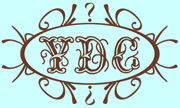Monday, April 21, 2008
Grocery Shopping - Dorm Room Edition
 Dorm rooms practically beg for snacking and unhealthy eating. When you condense all your living space into one tiny room, it can be tempting to eat bags of chips in bed while you watch DVDs on your laptop. Ordering pizza and Chinese food is another pitfall. At the end of a long day, sometimes all you want to do is sit down and drink a Coke.
Dorm rooms practically beg for snacking and unhealthy eating. When you condense all your living space into one tiny room, it can be tempting to eat bags of chips in bed while you watch DVDs on your laptop. Ordering pizza and Chinese food is another pitfall. At the end of a long day, sometimes all you want to do is sit down and drink a Coke.DON'T FALL FOR IT, PEOPLE!
There's a reason that the expression "Freshman 15" exists!
But, no fear. There are ways to keep your snacks healthy AND delicious, so that you always have something yummy to grab while you are relaxing in your dorm room.
Here's a list of stuff you should grab from the grocery store:
- Skim milk or soy milk. Not to be too preachy, but soy milk is far better for you than real dairy, and you can supplement calcium into your diet. Of course, most soy milk has calcium added!
- Healthy cereals. Most cafeterias offer lots of delicious, high-sugar cereals (Cocoa Puffs are a personal fav), but not too many versions of Kashi. Keep some high-fiber, healthy cereal in your room and try and trade on and off every day. One day, Cocoa Puffs, the next, Kashi.
- Baby carrot sticks.
- Hummus.
- Big, crunchy apples and oranges.
- Low-fat or "light" microwave popcorn--which is a great source of fiber!
- Yogurt.
- Pretzels.
- Pita bread.
- Sandwich meats, either "fake" (check your local Adventist Book Store or Safeway) or real meat.
- Olives.
- Low-sodium microwavable noodle dishes. Check the Asian section of your local grocery store to find some of these.
- Bottled water.
- Instant iced tea to make your water more interesting.
Labels: Jaclyn Wile, student blog
Tuesday, April 15, 2008
Secrets of College - Part 3
 Taking notes is an integral part of your college experience. No doubt you will come armed to classes with some form of note-taking device, ready to take down every word your professor says.
Taking notes is an integral part of your college experience. No doubt you will come armed to classes with some form of note-taking device, ready to take down every word your professor says.But...that's ridiculous.
You don't need to write down everything. You just need to know what is worth jotting down for later and what isn't.
Here are some general note-taking tips I've found helpful:
- Use what's most comfortable. If you like using your laptop, go ahead and use it. But, don't let yourself get distracted by your laptop. I've had plenty of friends that use their laptops to take notes, but end up looking at photos on their computer or surfing the Internet instead. If you like to take notes the old-fashioned way, make sure you have pens and pencils that are comfy and that you like to write with. If you prefer to record your lectures--which I find sort of a waste of time--do that. Do whatever feels most natural to you.
- Keep a highlighter handy. Even if you want to keep your textbooks as pristine as possible to get the best price at textbook buy-back, don't fall for it. Highlight everything. Mark up your textbooks. Another good thing about highlighting is that it keeps you engaged in the lectures and forces you to pay attention and re-read what the teacher is going over from the front of the classroom.
- Organize your notes. Keep one big notebook for all your classes, or have a different notebook for each class. Try using fun notebooks for class instead of the same old-same old. Target has some great notebooks you can use for class.
- Don't forget to read. Professors often assign reading for homework, but students rarely actually read. Beware of this! Often you will get called on to answer questions or to comment on something, and if you haven't read, you'll just look silly. Keep yourself engaged in class--it will pay off at finals!
Labels: Jaclyn Wile, student blog
Thursday, April 10, 2008
Addicted to Typeracer
 I have a confession: I am absolutely, 100% addicted to Typeracer.
I have a confession: I am absolutely, 100% addicted to Typeracer.Never heard of it?
Typeracer is an online game that tests the speed and accuracy of your typing skills.
Typeracer matches you up against other online users and you have to type a sentence from a song lyric, poem, novel or movie. The faster you type, the faster your race car moves across the top of the screen.
Typeracer automatically logs your average speed and how many races you have completed. The more you play, the faster you will be able to type!
Here's an article about TypeRacer if you want to read more about it. Or, go straight to the races!
Labels: Jaclyn Wile, student blog
Tuesday, April 1, 2008
Secrets of College - Part 2
 Textbooks are expensive.
Textbooks are expensive.Really, really expensive.
A recent study showed that most students average about $900 per school year on textbooks.
Isn't that crazy? They are, after all, just books. The oldest teaching medium in the world. A tree's worth of paper bound into a hardback cover.
But, here's the thing about textbooks: they don't need to cost you $900.
There are a couple different ways you can approach textbook buying for college. Each has its pros and cons.
Option One -- Buy from the Campus Bookstore
Buying your textbooks straight from the campus bookstore has some definite advantages.
- You'll get the right books. Your teachers have selected the books specifically for you to buy from the bookstore, so there will be no confusion over whether you have the right edition or not.
- It's easy. Your bookstore is right on campus. You can charge your books right on your student account. Which brings me to...
- Buying on your student account. When you do your financial aid, make sure to tell your officer to factor in bookstore charges into your overall tuition fees so that you have enough money on your account to cover your books. For students who rely on scholarships and student loans, buying your textbooks with your student account is a good idea. Then you won't be paying out of pocket cash for your books.
- Return policies for your campus bookstore are usually pretty lenient. That way, in case your professor decides you don't need that other $150.00 literature textbook, you can return it with ease.
Buying used textbooks is far cheaper, but requires a lot more work on your part.
- You'll have to contact your professors directly. Once you know your schedule and who will be teaching you, you'll want to e-mail or call them ASAP in order to get the textbook names and ISBN numbers from them. Keep in mind that your teachers may decide they don't need a certain textbook once classes start, or that they may change the textbook altogether at the last minute before the first day of classes.
- Check the Internet or local used textbook stores. This will be long and arduous work. Sometimes it's hard to find the specific textbook your professors suggests. Additionally, some textbooks aren't any cheaper even when they are used because it's a new edition.
- Go paperback. If you have a choice between paperback books and hardback books, always choose paperback. They are much more inexpensive. Keep in mind, though, that if you want to sell your books back, you won't get as much money for paperback editions.
Labels: Jaclyn Wile, student blog
















